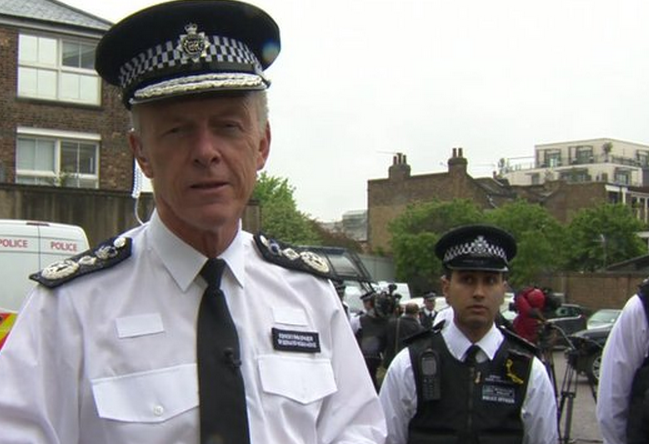The Metropolitan Police have announced that 500 police offers in 10 London boroughs will begin wearing cameras on their uniforms as part of a new trial.
According to the BBC, the Met Police want to boost transparency, record incidents, and accelerate convictions - and this new trial, which features cameras designed to capture evidence at crime scenes, could help the police service achieve its goals. Camden is the first borough expected to get the cameras, followed by Barnet, Bexley, Bromley, Brent, Croydon, Ealing, Havering, Hillingdon, and Lewisham.
"Our experience of using cameras already shows that people are more likely to plead guilty when they know we have captured the incident," said Sir Bernard Hogan-Howe, commissioner of the Metropolitan Police, to the BBC. "That speeds up justice, puts offenders behind bars more quickly and protects potential victims."
The cameras should improve policing, Hogan-Howe continued, especially during situations that are "hard to capture in writing" (such as a scared child at the scene of a domestic violence incident). In addition, the "mere presence of this type of video" could defuse potentially violent situations, according to Hogan-Howe.
READ: Met police add green Honda Hybrids to its fleet
The Met Police service plans to share the cameras among 31,000 officers, though it currently only has 500 devices. Every officer, including firearm officers during training, will store recorded material from incidents for at least one month unless it is required to be on file for evidential purposes. Officer must also comply with guidelines about when cameras are to be used.
One important guideline includes not always having the cameras switched on. The police service clarified that any body-worn pilot camera will not be permanently on at all times and that officers will promptly inform people when they are being filmed. Victims at crime scenes can ask not to be filmed, but suspects will not have that right.
"I believe it will also show our officers at their best, dealing with difficult and dangerous situations every day, but it will also provide clearer evidence when it's been alleged that we got things wrong," Hogan-Howe added. "That has to be in both our own and the public's interest."

